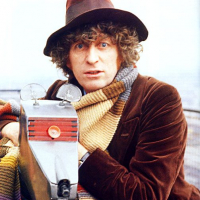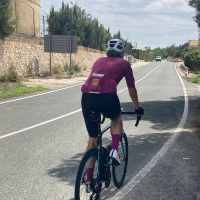TDF 2024:- Stage 19: Embrun – Isola 2000, 144.6km ***Spoilers***
Comments
-
Only someone who admits to hardly watching any of this year’s race would claim it is watered down. There’s been some brutal stages.
4 -
UAE were riding for the stage win all day. Expecting them to give it up because there's a nice guy up the road is fanciful.
2 -
I was going to respond in exactly the same way.
“ I want 250+km stages but I can’t be arsed to watch more than the final 10kms.”
Not the greatest pitch to prospective sponsors, not to mention race organisers and tv companies.
"Science is a tool for cheaters". An anonymous French PE teacher.0 -
I'm not sure we need longer mountain stages, it looks to me like just about everyone other than the absolute top are grovelling in already.
It's also worth noting that though not seen by those only watching the stage endings, the early parts of stages are being ridden harder and harder these days, and for longer. Accumulated fatigue is already a thing.
Warning No formatter is installed for the format0 -
What other sport is there where it's considered better to gift victories? Visma have a decent budget and every rider that's gone there has been a winner unless injured. I expect Simon Yates to have a resurgence next year. Going to UAE certainly worked for Adam. And LePorte turned,d from good rider to v.good rider/stage winner.
0 -
Degenkolb just said he averaged 320 watts for over 6 hours last weekend and just made the time cut. It doesn’t sound watered down to me. Stick in 250km mountain stages and the drop out rate would be ridiculous.
1 -
Re what changes in TdF stages may happen in the coming years, more longer or more shorter, more mountain or less mountain, apart from it rumoured that the route next year will be tailored more to suit Evenepoel, Thierry Gouvenou the other day implied that the number of sprint/flat stages will be reduced.
Gouvenou said that moderate transition stages in the past often meant smaller teams entered a break, as publicity for their sponsor and/or perhaps to temporarily make a showing for one of the jerseys, but that isn't now happening on stages which are so moderate that the break is eaten up by the peloton before the finish and it becomes a sprint stage.
He said the result on some moderate stages was that there was little interest in forming a break, so the peloton moved as a whole through much of the stage, which was reflected (when that happened) in lower TV viewing figures, to sponsors' dismay.
Gouvenou evidently feels that the harder stages he has promoted over the last few years have been more entertaining, even spectacular on occasion, and he hopes to increase their number at the expense of the pure sprinter stages, since the moderate transition stages now provide some of the sprint finishes.
Gouvenou also suggested that the two first difficult stages at the start this year were the false approach, as it meant the top placings for the jerseys were bagged quickly by riders who might continue to fight for them, leaving no play room wrt jerseys for the adventurous riders of smaller teams.
I suppose the opening stages in 2025 up by Lille/Dunkerque will be the opposite approach to the 2024 opening. And I'd say more stages in the Massif Central (although Gouvenou hasn't said there will be) might encourage breaks by smaller teams and also could mean less controi by the top GC teams and a more open race re the podium and top-ten placings. I'd have them at the expense of 2-3 high mountain/MTF stages.
0 -
More lumpy / medium mountain stages would be my suggestion. Open the race up to a much wider range of riders and also increase the amount of riders who can contend the minor jerseys.
0 -
“Can’t be arsed” is a bit much. Plenty of people have lives that can’t accommodate TV on all day for a month.
I don’t think it’s a coincidence televising the whole thing has coincided with a desire for shorter stages.
I think we’re increasingly testing a smaller range of abilities with shorter stages.
As we know in the classics, some riders are great up to 200km but struggle at 250km over. I suspect the same applies for GC riders.
Not least as modern tech and kit means these guys are riding faster than ever - it makes everything that little less difficult.
I’m not saying exclusively use 250km stages, but never going over 200km except for the odd sprint stage is just as limiting.
0 -
Have you actually looked at this year’s route? They had a 211km mountain stage (followed by a 204km flat stage the next day) and another mountain stage of 198km.
0 -
-
You said “never going over 200km except for the odd sprint stage”. That is a mountain stage of over 200km, make your mind up.
0 -
-
Why say they never go over 200km other than in the odd sprint stage if you meant never go over 200km except in the odd sprint and mountain stage? In any case, riding hard for a 180km stage is probably as attritional as a 250km stage ridden tempo.
0 -
-
I'd like at least one super long mountain stage each year - 250km plus with 6000 metres plus of climbing. Maybe choose a classic stage from a past Tour each year.
1926 there was a Pyrenean stage that started at midnight where the winner came in at over 17 hours. There have been 300 mile stages back in the day.
[Castle Donington Ladies FC - going up in '22]0 -
Wonder if anyone on here would watch the whole thing
0 -
I’d do what I quite often do and have it running on one screen whilst working (or having a nap on the weekend stages). Big mountain stages in general tend to be dull until the final few kms with a few notable exceptions, we’d just have another 1.5 hours of extra dull racing.
0 -
Raises hand
Warning No formatter is installed for the format1 -
Chasey's takes are becoming quite watered down over recent years... 😉
PTP Champion 2019, 2022 & 20231 -
The problem with making even more of the stages fit a certain template is that it ensures everybody has to bring the same kind of team. And more of that means even more breaks getting chased down for half the stage and the GC teams, who are best equipped to ride the break down before the finish, having an even easier job of doing so.
Bring back split stages, making one of them a short, sharp 60km one hour or so crit targetable by sprinters. Smaller teams might fancy their chances on a couple of them, or target a shorter moderate stage an hour later when everyone is burned out. Sure, there's the transfer and finish time issue, but make it work. Doing it before the rest days simplifies travel, for example, and gives you a Sunday lunchtime and teatime finish.
0 -
Who doesn’t watch the first 100km of Roubaix or Flanders?
0 -
Heathens.
Though I suspect some fishing for Chasey was going on
Warning No formatter is installed for the format0 -
I dunno. This one is quite a hot take tbf
0 -
It gets hotter every year as everyone demands non stop action stages which no rider can do for more then 150km, so we get shorter and shorter stages.
0 -
I hope Rick never casts his eye on the parcours the women get served up.
0 -
Yeah it’s ridiculous. Not least as we see from ultra endurance that the longer the distance the narrower the gap
0 -
Could be wrong here, but from a lot of reading relating to the "males in women's sport" issue I think this is a quirk of small entry fields where there are more males than females in some Ultra events, with the females simply being of a higher standard. Once this kind of thing is controlled for, the male performance advantage remains pretty much independent of event duration.
There's a similar quirk in the swim world in the UK where up to the age of 12, girls are faster than boys overall. This isn't because girls as a whole are physically superior to boys pre-puberty, but because so much male athletic talent is drawn away to football in those age groups, with no corresponding mega-activity on the girls' side to draw athletic girls away from swimming. There are studies based round primary school sports days (where there's no "selection" due to football - everyone competes by and large) that show male advantage in sports events exists from the word go, albeit at a relatively modest level.
1









